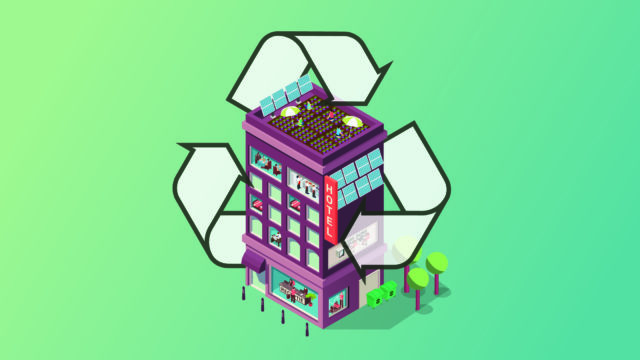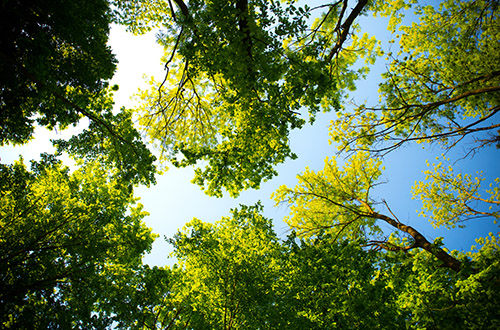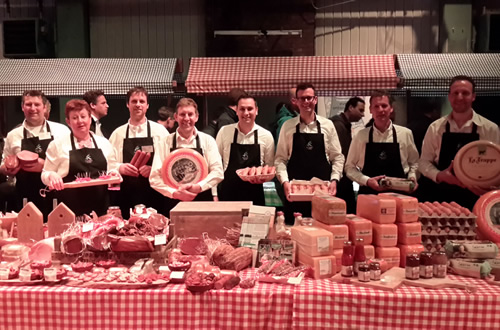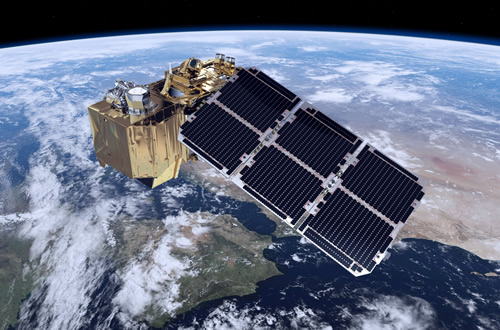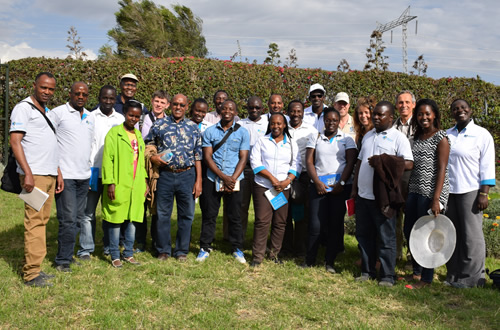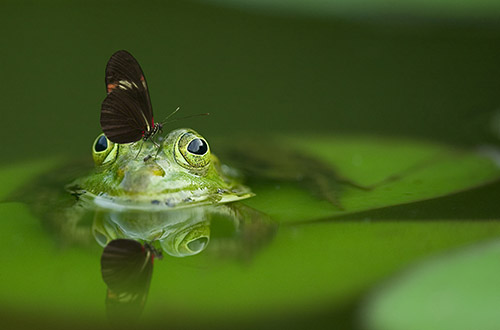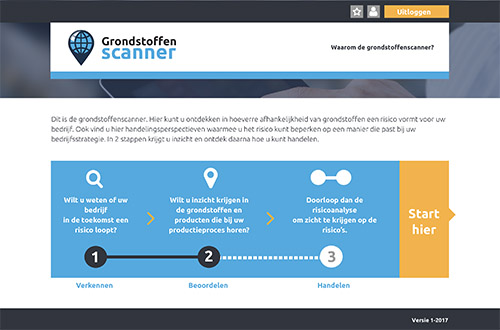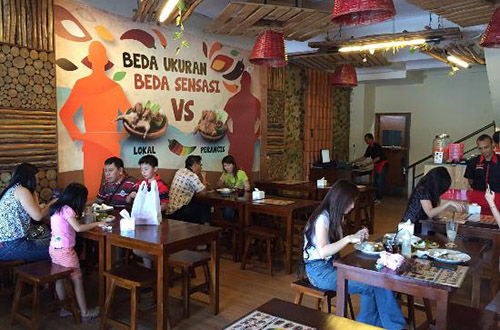Statistics Netherlands (CBS) is collaborating with Wageningen University and Research Centre (WUR) on 'natural capital accounts' for the government. Natural capital is a broad concept – for these accounts it will be mainly considered to be ecosystems (the forest, the heath, salt water, fresh water), but will also include the built environment (see: Value of forest, heath and built-up areas mapped out). (more…)
News
In the lead: Green Leaders
VNO-NCW West (the Confederation of Netherlands Industry and Employers, western region) established the Green Leaders network in the summer of 2016. This is a network for entrepreneurs who want to not only ease their burden on the environment, but actually improve it. It is a network of upscalers, family companies, the manufacturing industry and multinational companies from all industries. Together with the other four regional associations (VNO-NCW North, VNO-NCW Middle, BZW en LWV), they organize in-person meetings for these Green Leaders. During the meetings, participants are invited to participate in Green Circles. They can also contribute their own sustainability issues to the discussion.
(more…)
Getting Started with the Circular Hotels Leaders Group
The Circular Hotels Leaders Group was launched on the 9th of November. This is a group that has grown to 12 hotels that have already taken many steps along the path to sustainability, or are on the verge of doing so. They are: Stayokay Amsterdam, DoubleTree by Hilton Amsterdam Centraal Station, Hotel Jakarta Amsterdam, Amsterdam Tropen Hotel, The Albus, Mercure Amsterdam Centre Canal District, Ambassade Hotel Amsterdam, Hotel V, QO Amsterdam, Conscious hotels, The Student Hotel and Hotelschool The Hague. (more…)
Opportunities for a circular economy in Vietnam
Vietnam is developing quickly, leaving its low-income past behind and becoming a middle-income country. This rapid economic growth is accompanied by increasing pressure on the environment. While there is good environmental legislation, it is not always well enforced. The air quality in the capital, Hanoi, is one of the worst in the world and beautiful Ha Long Bay (a UNESCO World Heritage Site) is facing heavy environmental pressure brought on by the increasing number of tourists. These are big challenges. (more…)
Natural Capital Inventory by RWS
The Rijkswaterstaat (RWS) is in a position to strengthen natural capital in the Netherlands. They have the ingredients, for example the 14,000 hectares of green verge along the roads that form an essential network for the spread of flowers and insects. They also have the areas next to the roads, the waterways (including shore areas), artworks and resource use. Inventory The Ministry of Infrastructure and Water Management would like to make the RWS contribution to the national and European ambitions in the area of natural capital more visible. One of the Ministry's goals…
Child Labour Due Diligence in the Spice Supply Chain
Most spices are produced by small-scale farmers in developing countries. Their production provides many people with income, but also poses all sorts of social and ecological challenges. The Dutch spice sector recognizes that many companies are doing things like actively participating in the Sustainable Spices Initiative. In addition, the Dutch Spice Trade Association is intending to sign an agreement with the government and civil society organizations in the area of International Corporate Social Responsibility (ICSR). One ICSR issue in spice supply chains is child labour. (more…)
Finance and Natural Capital
There has been increasing attention paid to the subject of natural capital in the financial sector in recent years. CREM and VBDO have developed a guide and training course to provide more in-depth information in this area: 'Natural Capital & Financial Institutions'. The VBDO is also working with the Natural Capital Coalition and the National Capital Finance Alliance in the Financial Sector Supplement for the Natural Capital Protocol. The EU has started another successful initiative, with the CoP Finance@Biodiversity, which is partially under the guidance of NextGreen. The sustainability pioneers in the business…
Pilot: Matchmaking Between Farmers and the Hospitality Industry in Brabant
The mission of the Dutch Cuisine movement is to put a healthy and sustainable Dutch food culture on the map. Creative chefs and the many locally grown regional products make this cuisine and culture very special and help us to feel more pride in our Dutch culinary identity. To better publicize this unique food culture, Dutch Cuisine encourages chefs to be inspired by local products and to cook with them more often. However, the availability of these products can be a practical problem for the chefs. How can we ensure that these tasty products are easy to order?
(more…)
Strengthening ICSR in G4AW Projects
The Netherlands Space Office (NSO) is administering the subsidy program 'Geodata for Agriculture and Water (G4AW)' on behalf the Ministry of Foreign Affairs. With this program, the NSO is using public-private partnerships to stimulate projects that use satellite data to provide innovative information services to small-scale farmers in partner countries in Africa and Asia. The goal of the program is to contribute to the strengthening of global food security and more sustainable water use. Increasing the income of the small-scale farmers is also an important goal. (more…)
Training Wetlands International Kenya – Cooperation with Industry
Civil Society Organizations and Business
Companies do not traditionally work with civil society organizations to focus on becoming more sustainable. In the Netherlands, this type of cooperation has become more normal, but in countries like Kenya, it is still in its infancy. CREM, together with Steven de Bie from Conservation Consultancy and local consultant Simon Thuo, was asked to provide training on working in this manner to Wetlands International Kenya. (more…)Working Together on Sustainable Land Use
The current efforts to ensure sustainable land use are not sufficient to achieve our ambitions for the climate, a circular economy and sustainability. With the world population increasing and consumption growing, the pressure on our natural capital is constantly increasing.
There is more needed to protect our planet
(more…)Accessible Natural Capital Reporting
An increasing number of companies are becoming aware of the fact that natural capital is essential for their business. These companies are trying to discuss and structure the topic of natural capital, also in collaboration with third parties. The non-business world is also increasingly interested in the interaction between companies and natural capital, both financially and societally. But how can companies properly inform stakeholders with the best reporting on natural capital?
(more…)
Everything That You Always Wanted to Know About Raw Materials and Biodiversity…
... but were afraid to ask! Which raw materials are most likely to be in my product or semi-finished product? Are these resources scarce? What is the impact of these raw materials on biodiversity and how can I reduce that impact? Businesses and buyers can soon find the answers to these and other questions by using the 'Raw Materials Scanner'. This scanner is now being developed by TNO, EY and software developers, on behalf of the Ministry of Economic Affairs. It will first cover 64 metals; biotic resources, such as agricultural commodities, will possibly be added later.
(more…)
Monitoring Chicken and Corn Production in Myanmar
A consortium of companies and organizations under the direction of animal feed producer De Heus launched the 'Sustainable and Affordable Poultry for All (SAPA)' project in 2015.
Need for the initiative
This initiative was made possible in part by the Facility for Sustainable Entrepreneurship and Food Security (FDOV). De Heus has engaged Victor de Lange of CREM for the annual monitoring of this five-year project and for the final evaluation. (more…)New Generation of Indonesian Cooking Pilot in Bandung
In 2016, CREM worked with FENEDEX and FNLI to develop a strategy to promote more sustainable and healthier food consumption in Indonesia. This strategy is supported by many Indonesian groups and will launch a new gastronomic trend: the New Generation of Indonesian Cooking (NGIC). NGIC should be tasty and hip, but at the same time more sustainable and healthier. The promotion of local, often ethnically inspired cuisine and products is an important aspect of the project. This approach is seen as a smart way to influence consumer behaviour. And it transforms the Indonesian cook into a change agent.
(more…)



